At the beginning of January, Hands Along the Nile brought six American professionals to Tunisia as part of a series of exchanges between the Middle East and the United States. Jack Creagh of Chicago’s Anixter Center, Gloria Blackwell of Washington DC’s American Association of University Women (AAUW), and Erin Kelley of Washington DC’s National Women’s Business Council were among those who took part in our Professional Exchange Program, which is funded by the US Department of State. In addition to reconnecting with Tunisian alumni of the program and building on the professional relationships already initiated in the United States, the group sought to learn more about the economic empowerment of women and people with disabilities in Tunisia. Upon returning to the US, they shared their thoughts about their recent experience:
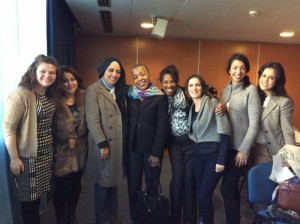
Erin Kelley, far left, and Gloria Blackwell, center, with a group of Tunisian Professional Fellows Program alumni (Photo Credit: Johnetta Frazier)
What was your working relationship with the fellows like?
Erin Kelley: “During the Tunisian fellow’s residency in the US, she had the opportunity to learn more about the women’s entrepreneurship ecosystem in the United States as well as project management and strategic planning skills. As a part of the reverse exchange, I was invited to tour the organizations of all the Tunisian fellows, learn about the Tunisian entrepreneurship ecosystem, and help fellows develop grant proposals for their projects.”
What kind of organizations have you visited?
Gloria Blackwell: “Site visits have taken us from a metropolitan tech and business incubator to a rural women’s community development enterprise based on the extraction of essential oils, and from dynamic exchanges with the National Chamber of Women Entrepreneurs to the Tunisian League of Women Voters.”
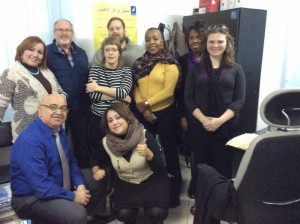
Tunisian fellows had the opportunity to discuss their work with their American counterparts: Jack Creagh, second from top left, with Gloria, Erin, and other members of the HANDS program. (Photo credit: Johnetta Frazier)
As part of HANDS’ program, did you have the opportunity to do some sightseeing while you’re there?
Jack Creagh: “I NEVER would have had the opportunity to visit North Africa. Without expectation, I was able to absorb a culture that was thousands of years old. I stood where the Carthaginians fought the Romans; I saw the remains of Aqueducts which carried water 134 kilometers from the Mountains to Carthage; I shopped in the Medinas of ancient cities; I said a prayer in the 2nd oldest Mosque in Tunisia; I ate harisa and captisi (I’m sure it’s spelled wrong, but I’ll never forget it!) and survived.”
What were some of the highlights from the trip?
Erin: “On a personal and emotional level, it was inspiring to learn more in depth about what the fellows are doing and the entrepreneurial leaps of faith they are taking. I’m humbled by their courage and I’m thrilled that I had the chance to help them make their ideas more of a reality.”
Jack: “Best for me was seeing the Fellows who had been to Chicago last Summer-watching them at work and showing us around their home city and country; knowing that the promise I had seen in them was being fulfilled on a daily basis and the lives of young people with disabilities were being touched and made better by the caring professionalism of people I knew. I am proud to consider myself part of a world-wide community of people reaching out so that those of us with the softest voices and weakest muscles can be heard.”
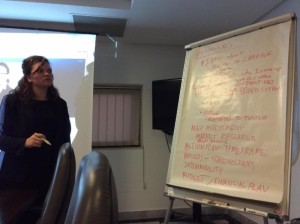
American participant Erin Kelley works with Tunisian fellows on grant proposal writing. (Photo credit: Johnetta Frasier)
What are some of the main takeaways from this experience?
Jack: “From the other mentors I travelled with, I learned of extraordinary work being done on behalf of people with disabilities and the economic advancement of women. To our hosts in Tunisia, I will be eternally grateful for their openness, dedication, commitment and promise of good work to come.”
Erin: “I really enjoyed the opportunity to learn more about Tunisia and the state of its infrastructure to support women’s economic agency. As a systems thinker, I’m always intellectually curious about how all components of an entrepreneurship ecosystem support the aspirations of women with dreams of entrepreneurship. I’m also excited to see how the projects go. There are so many innovative ideas that I’m sure will have a cascade effect on women’s entrepreneurship in Tunisia.”
Gloria: “It is critical to promote women’s entrepreneurship in Tunisia and provide women with the tools to create new economic pathways that support both career and family. Only then can the existing laws preventing gender-based discrimination be leveraged fully to empower more women. From what I can see, this generation of Tunisian women leaders, entrepreneurs, and innovators are getting those tools. And they’re not afraid to use them.”
To see Erin’s and Gloria’s full accounts of the trip, please visit their blogs:
Erin: http://www.nwbc.gov/content/tunisia-hotbed-innovation-and-entrepreneurial-spirit-women
Gloria: http://www.aauw.org/2015/01/14/revolution-tunisian-women/
HANDS is grateful to our local partner organizations Center of Arab Woman for Training and Research (CAWTAR) and the Federation of Tunisian Organizations of Persons with Disabilities (FATH) for their assistance in making this program possible.
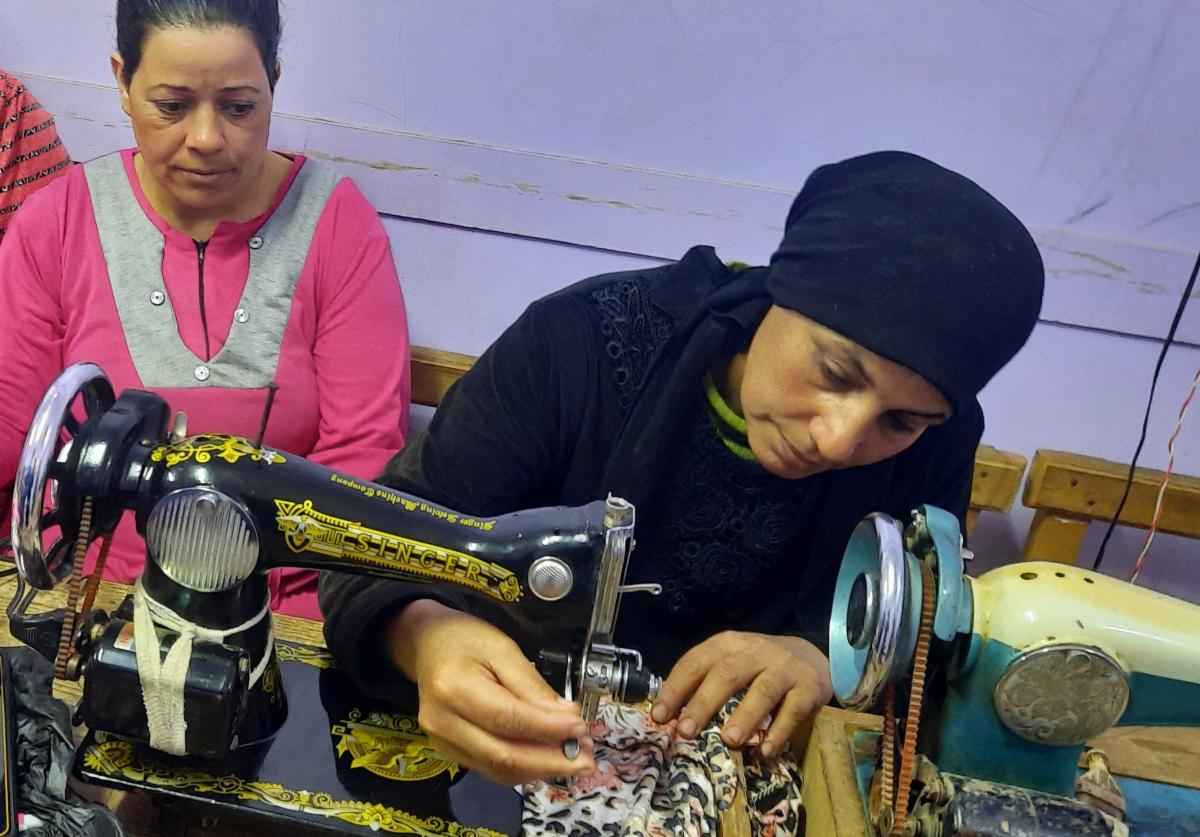


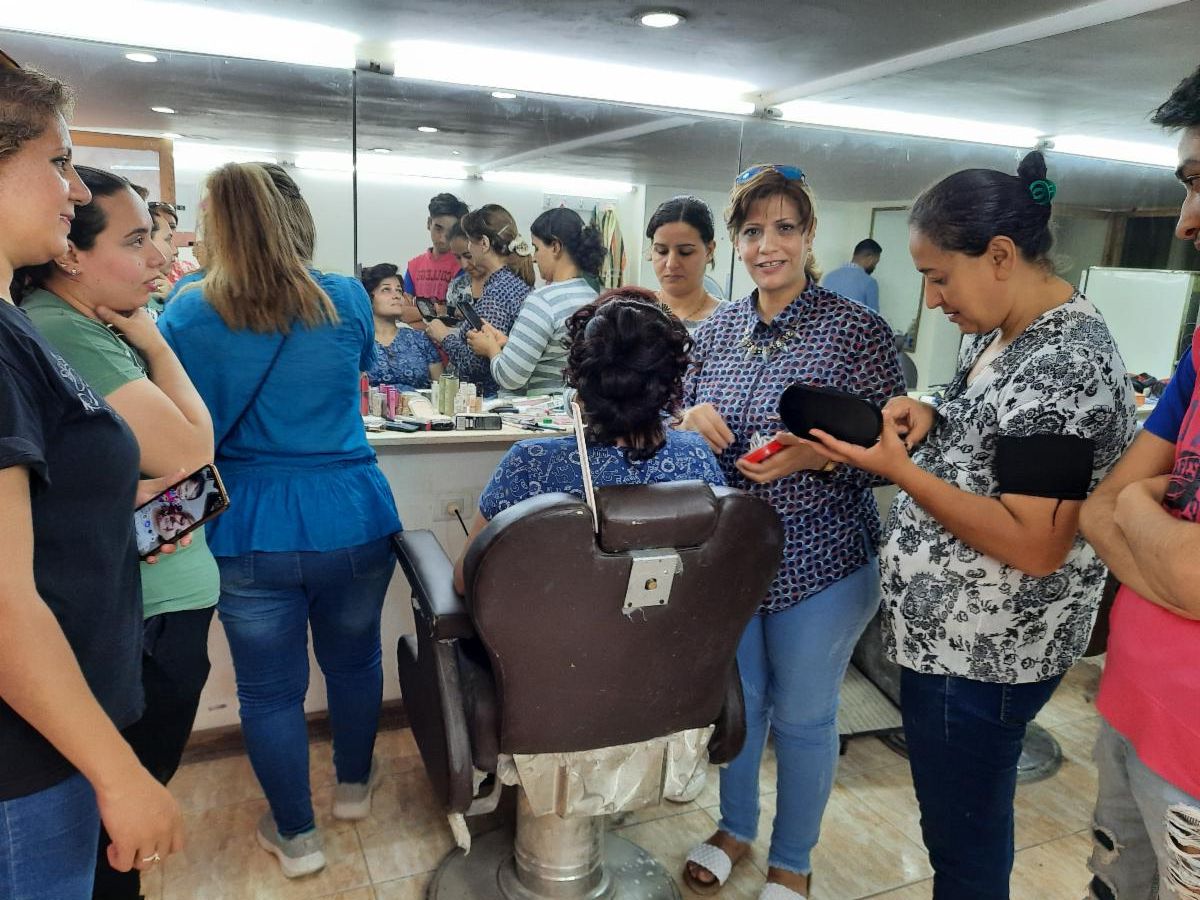
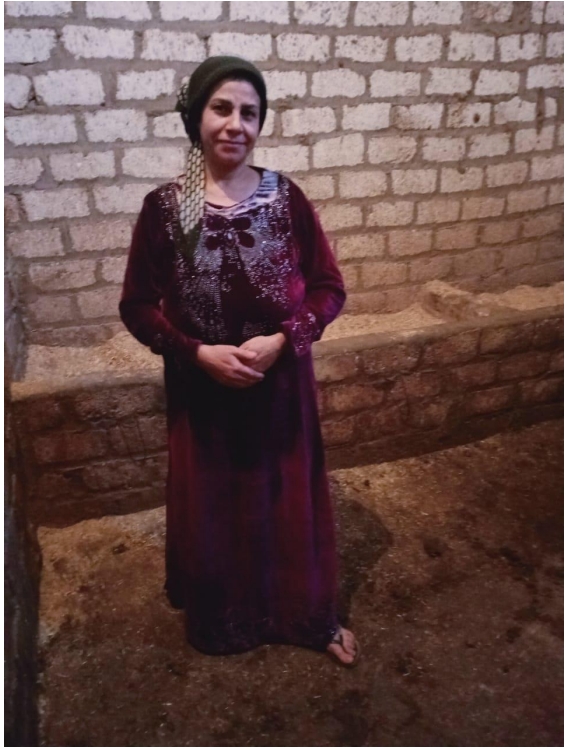
Morsas says:
March 31, 2015 at 2:29 am -
Just want to say how much my family and I apiatcpree your posts. We live in L’Aouina and saw the black smoke start rising this afternoon. We have never been inside the American School, but it gave us a sick feeling in our stomachs to hear of it being burned and looted. There is an eerie sense of calm right now in our area. Weird to see kids playing and people walking around with baguettes like nothing destructive is happening on the other side of town. We knew it was coming but never guessed it would be this extreme. Your posts over the past month or two that I’ve gotten them have caused us to really consider our situation and be more aware of our surroundings. Nice to know what to do in case of an emergency. Michael